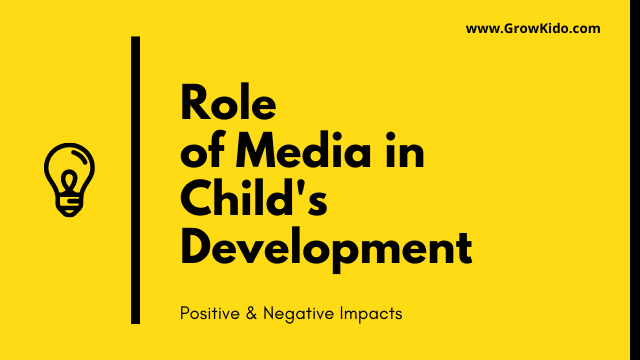7 Ways TV Can Develop Learning Attitude in Children (for Parents)
In today’s world, television is an important part of every child’s life. It teaches them many things. Children of today have learnt a lot many things from the television. It has increased their knowledge, made them inquisitive and alert and also confident.
Programs that are shown on television today help build’ the child’s personality and character. These programs have the ability to change the mental and physical attitude of a child and his complete point of view towards life.
Parents have a very important role to play in developing the learning attitude in children with the help of TV. They need to guide and mentor the children. They also need to ensure that the children develop positive learning attitude by watching good and motivational things on TV.
Recommended Reads: 11 Important Duties and Responsibilities of Parents Towards Their Children
7 Ways TV can Develop Learning Attitude in Children
Nowadays, television plays a very important in developing the right kind of attitude in children and parents can become the medium for television to enact this role perfectly in the child’s life. So, let us study about some of the ways through which TV can develop the correct form of learning attitude in children of today.
1. Cultural learning
TV has a unique ability to create strong benchmarks in terms of the young children’s understanding of things around them. It helps them share and get to know about their cultural learning and experiences. Such kind of cultural learning will open the way for them to enjoy the world of music and art for young people.
2. Encourage reading
TV acts as a means to make the kids learn and like the concept of reading. This happens when young kids see books being discussed on the same subjects that the kids study or hear about authors whose works have been made into programs.
3. Educational programs and current events
Many educational programs shown on television help the children develop their attitude for learning and socialization. Also, watching programs based on current events, news and general knowledge can help young children become keener on learning about such things. This, in turn, boasts of their intelligence level.
4. Documentaries
Interesting and creative documentaries being shown nowadays on TV can help develop critical thinking and information about society and the world.
5. Classic impression
TV can help young children develop a taste or interest in classics; like, Hollywood films and classic novels on which such films are based. They might not get to know about such books and films otherwise from anywhere else.
6. Improve reading speed and comprehension
TV has the potential to increase and progress the reading skills and comprehension of a child, particularly when it is used specifically for this purpose. Like, children in Finland have higher reading skills than the children of the entire world. One reason for this is that those children watch educational shows on TV.
7. Learn more languages
Children are also able to learn different languages. They are able to do so when they watch programs of different languages and read subtitles. These subtitles help them understand what is being spoken. Hence, helping them learn different languages.
Recommended Reads: Why Family Involvement in Early Childhood Education is Important
Should Babies and Toddlers Watch TV?
Babies are children who are younger than two years old. For them TV is just a mixed array of colours, beautiful images, and different sorts of noises. Being so small, they are unable to understand much of the content. Since an average TV scene lasts five to eight seconds, the baby will not be able to understand what is happening.
Nowadays, the cartoons and children’s series that are shown on TV are full of violence. If you do not agree to this, then try watching a children’s film and you will understand what is being talked about. Most such shows are just the animated versions of adult films available.
When children get exposed to these types of programs, it leads to an increase in the aggressive behaviour and numbs the children to the concept of violence. Babies and toddlers do not have the ability to gauge out the difference between what is real and what is not.
>> You can Protect your kids online and offline with Kaspersky Safe Kids
The watching of television continuously habit can be addictive for young kids. The more they watch TV the more they want to watch. Once they become addicted to it, turning it off can become a real battle for the parents.
Small children who begin to watch a lot of TV during their early years are also prone to becoming obese and aggressive. They generally, also, have problems in fitting in preschool or kindergarten.
So, based on all the above given reasons, parents should not allow babies and toddlers to watch television.
Final Thoughts
In the end, it all completely depends on the parents. If they are able to educate their children to be smart and understand about how they should view the content being shown on TV, then they will learn how to develop the right kind of learning attitude.
Most obviously, there are a lot of extra positives of TV that parents tend to overlook when they talk about intense emotionalism that TV has added in small children. Rather, instead of doing that we need to show our children about how to think judgmentally about TV and urge the children to make strong, instructive choices about what they choose to watch.






